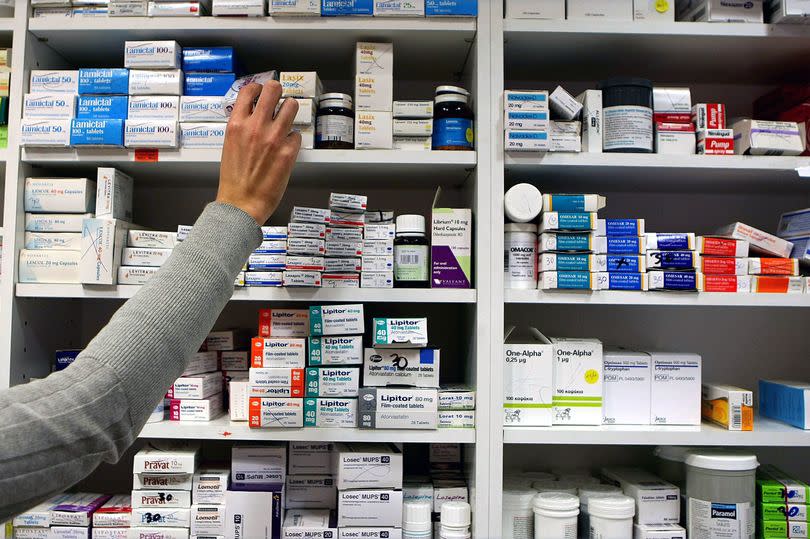Seven illnesses your pharmacy can now treat with a prescription

Pharmacists are receiving new powers to allow patients to get easier treatment for common health issues. NHS England is in the middle of rolling out a big change, which means that people will be able to skip a trip to their GP for common conditions.
The overhaul hopes to bring quicker and more convenient care for millions of Britons, allowing them to head straight to a pharmacy for prescriptions for the likes of earaches, sore throats, sinusitis, impetigo, shingles, infected insect bites and UTIs. It comes as a major time and hassle saver for patients.
The Mirror reports, however, that some people are worried that the change could put more pressure on pharmacists while easing a load on GPs - despite similar schemes in Scotland and Wales proving successful. And despite promises from the current Tory Government to hire more GPs, the number has actually fallen in recent years by 500.
The new plans will likely kick in by the winter, with the NHS hoping to free up 15million GP appointments with the move in the next two years. However, concerns have been raised over the bigger picture, with people feeling as though making pills readily available won't solve the problem in doctoral workforces.
There are also worries that pharmacies are struggling with funding and their own workforces. Dr Leyla Hannbeck CEO of the Association of Independent Multiple Pharmacies said: "The plan recognises the important role that community pharmacy can play in improving patient access to care.
"Any measures to facilitate patient care with a less cumbersome, less time-consuming and easier bureaucratic burden will be welcomed by pharmacy teams the length and breadth of the country. Over 90% of independent community pharmacies’ activities are for the NHS and pharmacies do not pass on their costs on to their patients and customers, consequently, many are operating at a loss.
"Years of underfunding have left them fighting for their survival. There is a shortfall of £1.1bn in pharmacy funding every year and rising, and many pharmacies are struggling to pay the ever-increasing prices of medicines and the higher general costs of doing business and managing greater workforce challenges.
"So far since 2015, more than 800 pharmacies have closed permanently and sadly more will shut this year. We have always been willing to play our part in supporting the NHS. We demonstrated that during the pandemic when we kept our doors open and provided a vital service to our struggling communities.
"Whilst the Government’s Primary Care Recovery Plan is a step in the right direction, more needs to be done to address the funding crisis, workforce challenges and medicines supply issues that have brought our pharmacies to their knees, causing more and more pharmacies to close their doors permanently."
Amanda Pritchard, NHS chief executive said: "GPs and their teams are working incredibly hard to deal with unprecedented demand for appointments. But with an ageing population, we know we need to further expand and transform the way we provide care for our local communities and make these services fit for the future.
"Today, we are setting out an ambitious package of measures to do just that – with pharmacies playing a central role in managing the nation’s health including providing lifesaving checks and medication for common conditions for the first time. This blueprint will help us to free up millions of appointments for those who need them most, as well as supporting staff so that they can do less admin and spend more time with patients."

 Yahoo News
Yahoo News 
